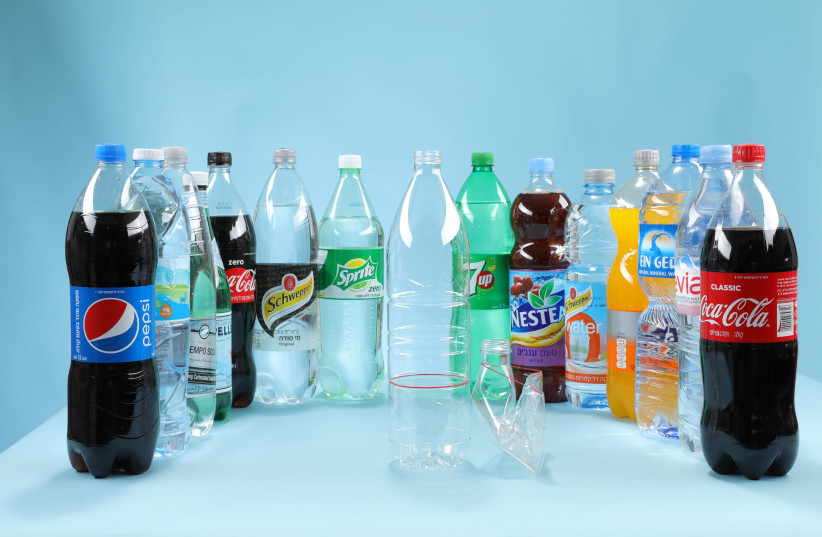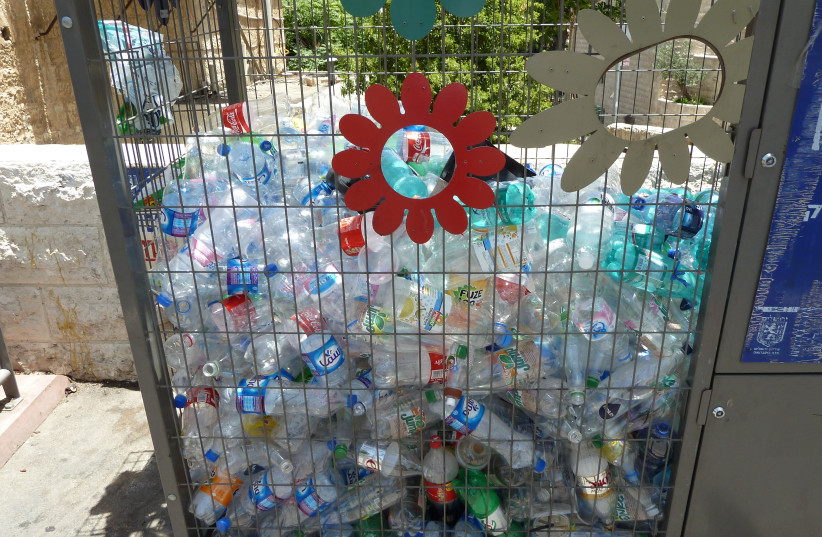Bottles between a liter and a half and five liters will now be included in the Deposit Law.
By ZACHY HENNESSEY Published: DECEMBER 6, 2021

As of this week, Israel’s Deposit Law will also apply to beverage containers from one-and-a-half liters up to five liters.Israel’s bottle Deposit Law, passed in 1999 and implemented in October 2001, requires beverage manufacturers and importers to collect and recycle empty drink containers.
Initially, only bottles between 100 milliliters and 1.5 liters were allowed to be returned. Now that the program has been expanded to include containers up to five liters, lawmakers are hoping to see an improvement in the cleanliness of public spaces, as well as a reduction in buried waste and an increase in recycling.As a result of this expansion, Israel has joined a growing list of countries that have applied deposit fees on all drink containers, in part to deal with the problem of disposable plastic in the environment.
Tests carried out for the Environmental Protection Ministry indicated that applying the deposit will reduce the number of plastic bottles littering public spaces, and will encourage the establishment of plastic recycling plants in Israel.“
It’s a historic day! The State of Israel is beginning a new era,” said the Environmental Protection Minister MK Tamar Zandberg, who proceeded to acknowledge the country’s tardiness in introducing a solution to the issue. “Twenty years late, with many delays, an expansion of the Deposit Law came into force that would turn the large plastic bottles from waste that pollutes the open areas, sea and public space, into a recycling resource.”
Environmental Protection Ministry Director-General Galit Cohen said, “The share of large bottles is 75% of all plastic bottles in Israel. The plastics pollute our environment and harm our health. From today, with the expansion of the deposit on the large bottles, fewer of them will be thrown away in nature reserves, parks and on the streets polluting our surroundings.”
The expanded law comes alongside other governmental efforts to limit the purchase of plastics, such as the recently implemented plastic utensils tax.“
This is another step by Israel in the struggle against the climate crisis, which takes us one step further on the road to an economic cycle,” said MK Zandberg. “This is an important move that will lead to a cleaner public space and a significant reduction in the amount of waste,” said Elad Amichai, senior VP for local government and community. “This will put us in line with other countries around the world that are stopping plastic waste.”
